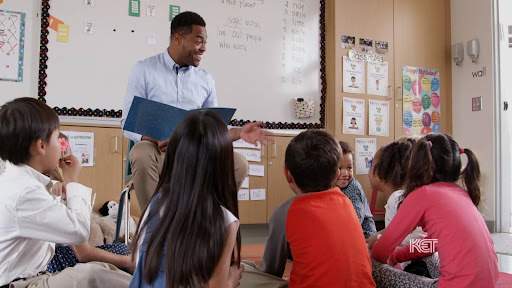In the ever-evolving landscape of education, the focus has expanded beyond traditional academic achievements to encompass the holistic development of students. Recognizing the crucial role of social-emotional learning in schools for shaping well-rounded individuals, schools increasingly embrace initiatives beyond textbooks and classrooms. Among these, Teen Programs and Youth Coaching have emerged as powerful tools for fostering emotional intelligence, resilience, and interpersonal skills among students.
Understanding Social-Emotional Learning
Social-emotional learning is a comprehensive approach that equips students with the skills necessary to navigate the complexities of life successfully. It encompasses self-awareness, self-management, social awareness, relationship skills, and responsible decision-making. By integrating these aspects into the educational framework, schools aim to prepare students for academic excellence and personal and social success.
The Role of Teen Programs
Teen Programs play a pivotal role in fostering social-emotional development among adolescents. These programs create a supportive environment that encourages self-discovery, empathy, and effective communication. By addressing teenagers’ unique challenges, these programs provide a platform for students to explore their emotions, develop resilience, and build positive relationships.
One key element of Teen Programs is their ability to address issues such as peer pressure, identity exploration, and conflict resolution. Through targeted activities and discussions, students can gain valuable insights into their emotions and learn strategies to cope with their challenges. Teen Programs often incorporate real-world scenarios, allowing students to practice and refine their social and emotional skills in a safe and controlled setting.
Youth Coaching: A Personalized Approach
Complementing Teen Programs, Youth Coaching takes a more personalized approach to social-emotional learning. Recognizing that each student is unique, Youth Coaching tailors its strategies to each participant’s individual needs and strengths. This one-on-one guidance enables students to delve deeper into self-discovery and personal growth.
Youth Coaching emphasizes the development of emotional intelligence, a critical skill for success in various aspects of life. By working closely with a coach, students can identify and understand their emotions, learning how to manage them effectively. This self-awareness empowers students to make informed decisions, cultivate resilience, and build healthy relationships.
The Impact on Academic Success
Research consistently shows that students who engage in robust social-emotional learning experiences, including participation in Teen Programs and Youth Coaching, often demonstrate improved academic performance. When students feel emotionally supported, they are better equipped to focus on their studies, manage stress, and collaborate effectively with peers.
Moreover, the skills acquired through social-emotional learning contribute to a positive school culture. Students who are emotionally intelligent and socially aware create a conducive learning environment, fostering a sense of belonging and community within the school.
Preparation for Future Challenges
In a rapidly changing world, adapting to new situations, collaborating with diverse groups, and navigating challenges is paramount. Teen Programs and Youth Coaching equip students with the tools they need to thrive in an ever-evolving society. Whether entering the workforce, pursuing higher education, or engaging in community initiatives, the social-emotional skills cultivated through these programs are invaluable for future success.
Teachers and Parents as Partners
The success of social-emotional learning initiatives relies on the collaboration between schools, teachers, and parents. When educators and parents work together, they create a cohesive support system that reinforces the values and skills taught through Teen Programs and Youth Coaching. Regular communication between teachers and parents can provide valuable insights into students’ progress, enabling a holistic approach to their development.
Conclusion
Integrating social-emotional learning in schools through initiatives like Teen Programs and Youth Coaching marks a paradigm shift in education. The long-term impact extends beyond academic success, influencing students’ personal and professional lives as they embark on their journey toward adulthood. In embracing social-emotional learning, schools become not just centers of knowledge but hubs of holistic development, shaping individuals who are prepared to thrive in the complexities of the 21st century.

